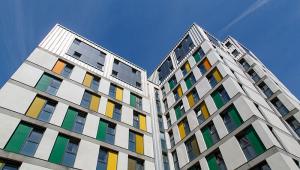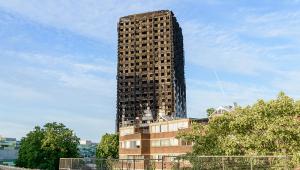Four hapless MPs have been experiencing the hell of high-rise living as part of a TV show. Such housing problems are not new, but compelling solutions seem no closer
Channel 4’s idea of sending four MPs to live in social housing is not entirely new. Matthew Parris, for one, took part in a similar programme while he was in the Commons. But last Monday’s first instalment of Tower Block of Commons certainly provided plenty of cringeworthy moments. The hapless parliamentarians were moved into households in Hull, Birmingham and east London and left to live the life of locals.
Programmes of this sort are often seen in terms of ‘how the other half lives’. The dilapidated tower blocks chosen for this particular social experiment are not generally representative of social housing. Nor are the living conditions an accurate picture of how all poor people live. But there is little doubt that the coming together of towers, poverty and social problems creates grim outcomes. And the minority status of poor people living in high rises puts them at risk of being ignored by policy makers.
The odium now dumped on municipal tower blocks makes it hard to believe that such buildings were constructed in an era of consensus and hope, when politicians believed they were radically improving the lot of city slum-dwellers.
The history of council housing and, in particular, tower blocks is endlessly revisited in books and research reports. It is now recognised that gardenless flats in tall buildings are alien to virtually all Britons’ desires for a little country house with a garden.
In fairness to the politicians and architects, they planned most of the high-rise housing at a time when the country was still deferential, and with very low crime rates. Had the ordered (some would say repressed) society of the mid-1950s continued, it is probable that tower block housing would not have become associated with intergenerational poverty, drugs and the loss of hope.
The parliamentarians certainly witnessed these ills and more besides The contempt for MPs was palpable. Indeed, contempt is too weak a word. Derision, envy and even hatred were all on display.
The expenses scandal has simply created a lightening conductor for a wider sense of abandonment expressed by many of those given a voice in the programme. One man explicitly said he had switched from voting Labour to the British National Party for this reason. Branding him a ‘fascist’, as some in politics would, is unlikely to improve his lot.
In fairness to the MPs, particularly Liberal Democrat Mark Oaten and Conservative Tim Loughton, they worked hard to be empathetic to their hosts. But the gulf of class and experience between affluent middle-class people and the near-abandoned poor is almost impossible to bridge, as John Hills’ recent report on inequality implied. The British electorate must, to some degree, be willing to tolerate this situation – otherwise it would vote in a government prepared to do something about it.
The grim housing and social conditions made plain by the Channel 4 programme are well understood by public officials. Housing officers, social workers, teachers and police officers attempt to manage deprived estates constantly. They are, in truth, applying endless sticking plaster to an incurable wound. It is not a waste of money. But it would be naïve to imagine they alone can ‘solve’ the problems.
No-one in government or public policy has any kind of compelling solution to the problems on display. Ask yourself this question: would putting up benefits be good or bad for people living in these conditions? The case can easily be made both ways.
One of the few good ideas to emerge from policy debates in recent years is moving towards so-called ‘mixed communities’. These are a noble objective and come closest to a simple part-solution.
But changing housing conditions is only a start. Creating ladders into further and higher education has proved very difficult. Digital communication risks creating a new divide between ‘haves’ and ‘have nots’. Public health differences (smoking, weight) have become a visible signal of social difference. The list goes on.
Sadly, it is hard to imagine any improvement to the conditions on display in Tower Block of Commons without an approach that lasted for a generation or more. But that’s reality, not TV.
Tony Travers is the director of the Greater London Group at the London School of Economics










